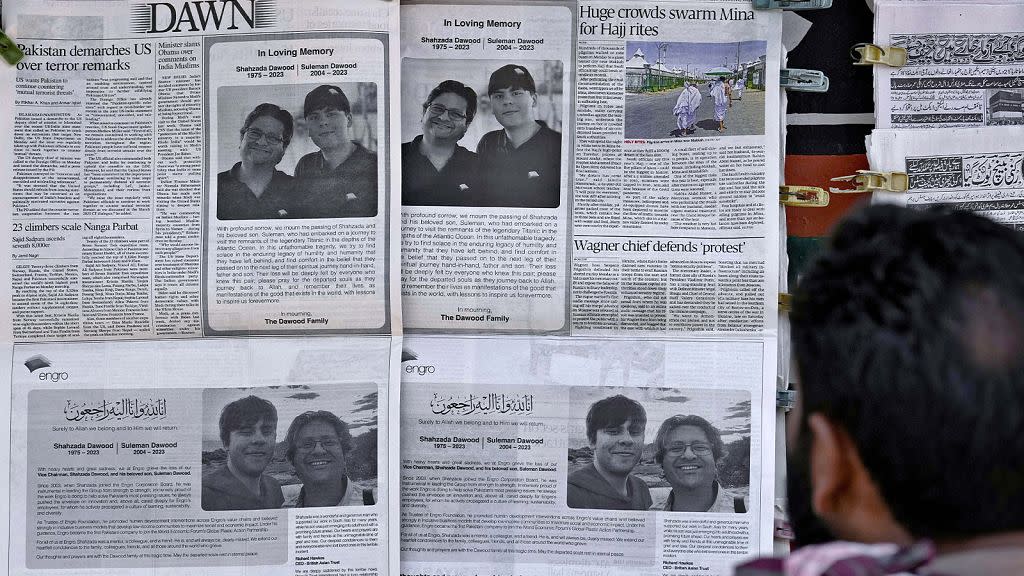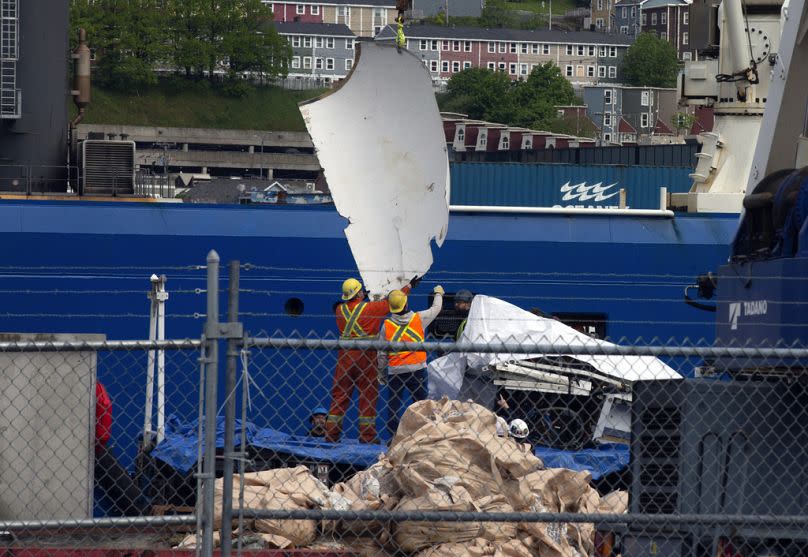One year after deadly Titan sub accident, explorers gear up to go back to Titanic

Tuesday marks the one-year anniversary of the death of five people in a Titanic shipwreck-bound submersible after their disappearance triggered a high-profile search party and had the world on edge for five days.
The rescue operation was called off after authorities and experts found debris from the privately owned submarine on the ocean floor. They concluded that it had imploded just a few hours after initiating the dive.
David Concannon, a former adviser to OceanGate, the company that owned the Titan submersible, said he would mark the anniversary privately with a group of people who were involved with the company or the submarine's expeditions over the years, including scientists, volunteers, and mission specialists.
In the aftermath of the deadly accident, the company behind the Titan was all but finished, while negative reactions to the disaster escalated to full-blown death threats, he explained.
“Stockton Rush has been vilified and so has everyone associated with OceanGate. I wasn’t even there and I have gotten death threats," he told AP.
However, concerns have been raised about whether the submersible was destined for disaster because of its unconventional design and its creator’s refusal to submit to independent checks that are standard in the industry.
Experts think Titan submersible imploded due to design defects
Why the Titan submarine disappearance led to public schadenfreude
The US Coast Guard quickly convened a high-level investigation into what happened, but officials said the inquiry is taking longer than the initial 12-month time frame, and a planned public hearing to discuss their findings won’t happen for at least another two months.
In addition to Rush, the implosion killed two members of a prominent Pakistani family, Shahzada Dawood and his son Suleman Dawood, British adventurer Hamish Harding, and Titanic expert Paul-Henri Nargeolet.
Exploration club: Rescue wasn't quick enough
Richard Garriott, president of the Explorer's Club of which Harding and Nargeolet were members, believes even if the Titan hadn't imploded, the correct rescue equipment didn't get to the site fast enough.
The tragedy caught everyone from the Coast Guard to the ships on-site off guard, underscoring the importance of developing detailed search and rescue plans ahead of any expedition, he said.
His organisation has since created a task force to help others do just that.

"That’s what we’ve been trying to really correct, to make sure that we know exactly who to call and exactly what materials need to be mustered,” he said.
Garriott believes the world is in a new golden age of exploration thanks to technological advances that have opened frontiers and provided new tools to more thoroughly study already visited places. The Titanic tragedy hasn’t tarnished that, he said.
Desire to keep exploring new depths
Meanwhile, deep-sea exploration continues.
The Georgia-based company that owns the salvage rights to the Titanic plans to visit the sunken ocean liner in July using remotely operated vehicles, and a real estate billionaire from Ohio has said he plans a voyage to the shipwreck in a two-person submersible in 2026.
“It's been a desire of the scientific community to get down into the ocean,” said Greg Stone, a veteran ocean explorer and friend of Titan operator Stockton Rush.
Veteran deep-sea explorer Katy Croff Bell agrees.
The Titan implosion reinforced the importance of following industry standards and performing rigorous testing, but in the industry as a whole, “the safety track record for this has been very good for several decades,” said Bell, president of Ocean Discovery League, a non-profit organisation focused on making deep-sea investigation less expensive and more accessible.


